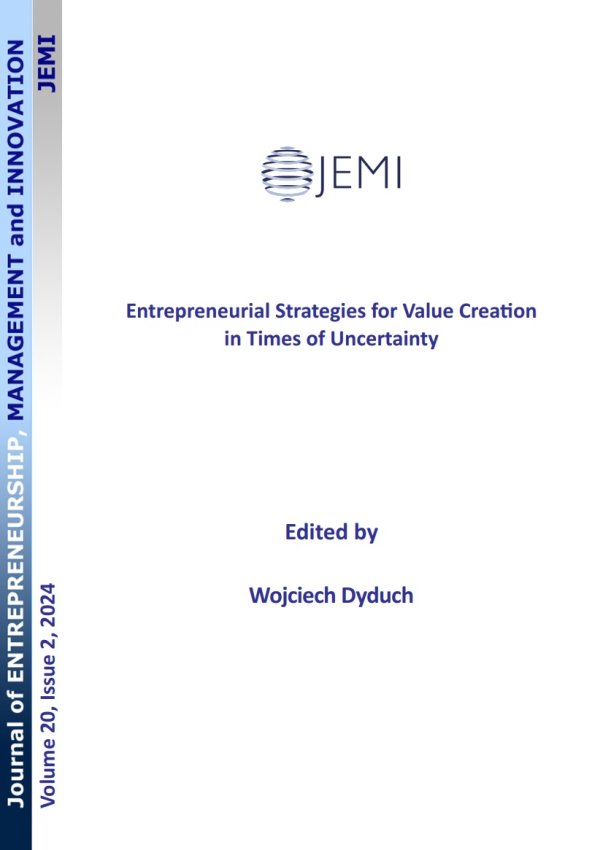Robert Golej, Ph.D., Wrocław University of Economics, ul. Komandorska 118/120, 53-345 Wrocław, e-mail: This email address is being protected from spambots. You need JavaScript enabled to view it..
Abstract
A very significant form of company activity determining its development and even survival is innovation activity. Raising capital for the implementation of innovation is an important but not the only factor in the introduction of innovation. Characteristics of innovation, and in particular the risk of failure, make for a significant difficulty in obtaining external financing, particularly from third parties, which is an obstacle to their development and implementation. The subject of discussion in the article is the hybrid formula mezzanine type of financing innovative projects implemented both in start-up companies and in already well established companies. The purpose of the article is to discuss the possibilities and to perform an analysis of the practices followed by mezzanine funds in Poland in respect to the innovation activities of Polish companies. Research presented in the article was conducted on the basis of information on investments performed by mezzanine funds in Poland.
Of particular importance for the innovativeness of the economy is to have companies from the SME sector, and therefore we also carried out research in this group. Innovations are often initiated in special purpose companies, start-up, etc., that operate in the SME sector. Therefore, the financing of innovation cannot be ignored as a thread of innovation in SMEs. The study involved interviews in several companies in the sector. The study concerned the possibilities of financing innovation involving mezzanine, knowledge of hybrid forms of financing, preparedness for hybrid financing. Studies are not representative, but are rather sounding a view to clarify any further research. Hypothesis: mezzanine financing, utilizing its specific benefits, is increasingly used to finance the gap in the financing of innovation, in particular, special purpose companies in the SME sector. So the hypothesis raises two strands of research. The first concerned the financing of innovation as seen from the mezzanine fund. The second concerns the willingness of enterprises to use this form of financing. The first part of the article is devoted to the embeddedness of mezzanine financing. For that purpose, the specific innovation feature decisive to the possibility of external financing was indicated. Various investment strategies of Private Equity Funds on a global scale were presented in a way intended to highlight the meaning and characteristics of mezzanine financing. Also, on the basis of statistical data, the potential market for innovation financing in Poland was indicated. Subsequently, the essence of mezzanine type financing and its potential to support development and innovation was presented. Upon this background, an analysis of the possibilities for financing innovation in startups and established companies was conducted. Also, examples of mezzanine financing that took place in Poland in recent years were presented. The article, therefore, is constructed in the form of deductive-inductive analysis.
The conducted research leads to the conclusion that there is a gradual development of mezzanine financing in Poland. The transactions are also diverse as to the industry sector and the size of the investment. There is also a noticeable lowering of the minimum quota of individual investments, which means that the popularity of this form of financing could increase. What needs to be noticed, however, is that mezzanine funds focus their activity on companies in good financial condition, which do not have the credit capacity for the implementation of all their development projects. They have the characteristics of a mature organization. So they have: a strategy, experienced management, good cash flow, good market position and growth potential.
Keywords: innovation, mezzanine, funding innovation, Poland.






